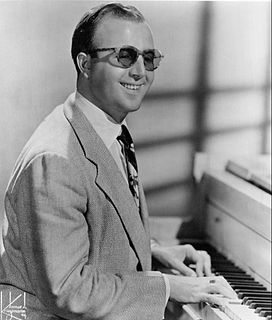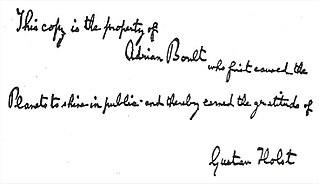
Ella and Duke at the Cote D'Azur is a 1967 live album by Ella Fitzgerald, accompanied by the big band of Duke Ellington.

Ella at Juan-les-Pins is a 1964 live album by Ella Fitzgerald, accompanied by a quartet led by Roy Eldridge on trumpet with the pianist Tommy Flanagan, Gus Johnson on drums and Bill Yancey on bass. Val Valentin was the recording engineer, Cover photo by Jean-Pierre Leloir. The original 1964 album featured 12 songs, highlights of two concerts Fitzgerald performed on the 28 and 29 of July 1964 at the fifth annual Festival Mondial du Jazz Antibes in Juan-les-Pins, France. In 2002 Verve re-issued this album, including all the performances from both evenings. Ella is in fine voice, sounding very aggressive at times, as her voice leaps and growls. The listener also gets to hear Ella improvise a musical tribute to the crickets who are also in fine voice throughout the performance.

Sarah Vaughan, sometimes incorrectly referred to as Sarah Vaughan with Clifford Brown, is a 1954 jazz album featuring Grammy Award winning singer Sarah Vaughan and influential trumpeter Clifford Brown, released on the EmArcy label. It was the only collaboration between the pair. Well received, though not without some criticism, the album was Vaughan's own favorite among her works through 1980. The album was inducted into the Grammy Hall of Fame in 1999.
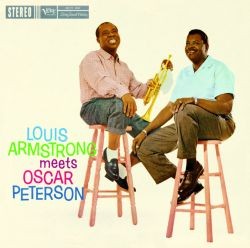
Louis Armstrong Meets Oscar Peterson is a 1957 studio album by Louis Armstrong, accompanied by Oscar Peterson.
Continental Experience is a studio album by British jazz pianist George Shearing, billed as part of the 'George Shearing Quintet and Amigos'.
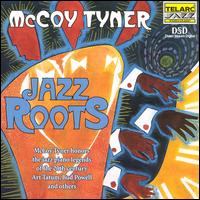
Jazz Roots: McCoy Tyner Honors Jazz Piano Legends of the 20th Century is a solo piano album by McCoy Tyner released on the Telarc label in 2000.
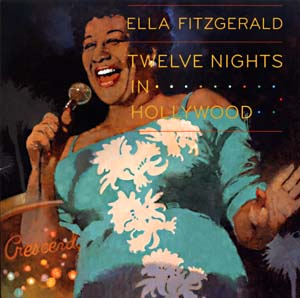
Twelve Nights In Hollywood is a 2009 live album by the American jazz vocalist Ella Fitzgerald, recorded at the Crescendo Club in Hollywood, Los Angeles over ten nights in May 1961, and a subsequent pair of performances in June 1962.

George Shearing and the Montgomery Brothers is an album by Anglo-American jazz pianist George Shearing and jazz trio The Montgomery Brothers, released in 1961.

Lullabies of Birdland is a 1956 studio album by Ella Fitzgerald, issued on the Decca Records label. The album features tracks recorded during the late 1940s and early 1950s, that had been previously issued on 78rpm single. MCA Records re-issued the complete album on CD, in 1998, together with the 1955 album Sweet and Hot.
Guitar Player is a studio album by American jazz guitarist Tal Farlow. Sides 1 and 2 were recorded in October 1955 while the other half of the double album wasn't recorded until September 1969. It was released in 1974 by Fantasy Records as The Return of Tal Farlow.

By the end of the 1940s, the nervous energy and tension of bebop was replaced with a tendency towards calm and smoothness, with the sounds of cool jazz, which favoured long, linear melodic lines. It emerged in New York City, as a result of the mixture of the styles of predominantly white swing jazz musicians and predominantly black bebop musicians, and it dominated jazz in the first half of the 1950s. The starting point were a series of singles on Capitol Records in 1949 and 1950 of a nonet led by trumpeter Miles Davis, collected and released first on a ten-inch and later a twelve-inch as the Birth of the Cool. Cool jazz recordings by Chet Baker, Dave Brubeck, Bill Evans, Gil Evans, Stan Getz and the Modern Jazz Quartet usually have a "lighter" sound which avoided the aggressive tempos and harmonic abstraction of bebop. Cool jazz later became strongly identified with the West Coast jazz scene, but also had a particular resonance in Europe, especially Scandinavia, with emergence of such major figures as baritone saxophonist Lars Gullin and pianist Bengt Hallberg. The theoretical underpinnings of cool jazz were set out by the blind Chicago pianist Lennie Tristano, and its influence stretches into such later developments as Bossa nova, modal jazz, and even free jazz. See also the list of cool jazz and West Coast musicians for further detail.
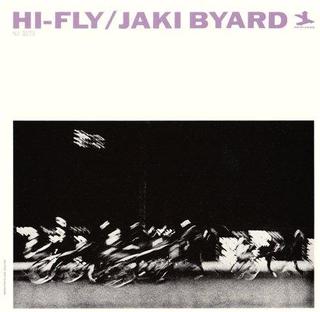
Hi-Fly is an album by pianist Jaki Byard recorded in 1962 and released on the New Jazz label.

Traditionalism Revisited is an album by jazz trombonist and pianist Bob Brookmeyer featuring popular music of the 1920s and 1930s recorded in 1957 for the World Pacific label.

Jazz at Cal-Tech is an album by saxophonist Bud Shank recorded in early 1956 for the Pacific Jazz label.

Dexterity is a 1988 live album by the jazz pianist George Shearing recorded at the second Fujitsu-Concord Jazz Festival. The singer Ernestine Anderson appears on two tracks. Shearing and Anderson would later record the album A Perfect Match.
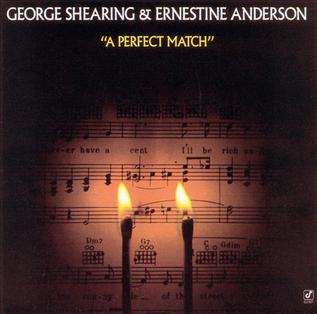
A Perfect Match is a 1988 album by jazz pianist George Shearing and the singer Ernestine Anderson. The pair had previously appeared together on Shearing's 1988 live album Dexterity.
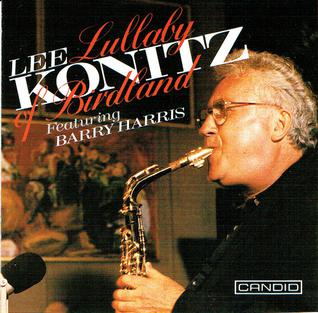
Lullaby of Birdland is a live album by saxophonist Lee Konitz featuring pianist Barry Harris which was recorded at Birdland in 1991 and released on the Candid label.
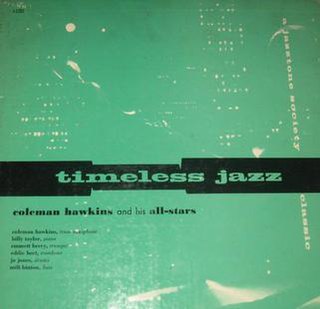
Timeless Jazz is an album by saxophonist Coleman Hawkins which was recorded in 1954 for the mail order Jazztone label and rereleased as Jazztones on Xanadu Records in 1982.

